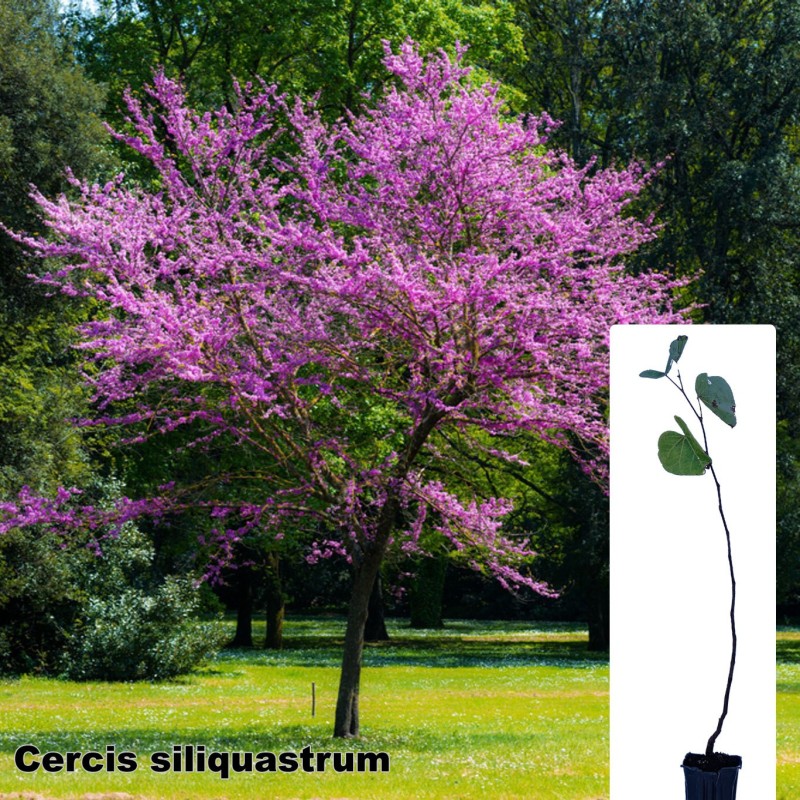Cercis siliquastrum, commonly known as the Judas tree or Judas-tree, is a small deciduous species of redbud in the flowering plant family Fabaceae which is noted for its prolific display of deep pink flowers in spring. It is native to Southern Europe and Western Asia.

